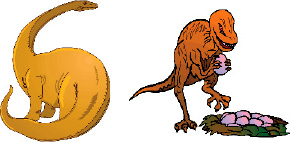


 The first point that
I would like to make in this discussion is that the word distill is an
unfortunate choice of words. When you distill water, you change it into
steam and condense it back into water so that any impurity in the water
is removed. The water is still water--just not contaminated by salt or
bacteria or some other chemical. To maintain that the Bible is being
distilled would be to maintain that it is being purified--that the
impurities are being taken out. If the impurities are the additions,
speculations, and modifications by humans this would be a good thing.
In the past there have been misunderstandings of the Bible that were in
fact corrected by science.
The first point that
I would like to make in this discussion is that the word distill is an
unfortunate choice of words. When you distill water, you change it into
steam and condense it back into water so that any impurity in the water
is removed. The water is still water--just not contaminated by salt or
bacteria or some other chemical. To maintain that the Bible is being
distilled would be to maintain that it is being purified--that the
impurities are being taken out. If the impurities are the additions,
speculations, and modifications by humans this would be a good thing.
In the past there have been misunderstandings of the Bible that were in
fact corrected by science.
In Revelation 7:1 we are told about "four angels standing at the four corners of the earth." People deduced from this passage that the earth was flat. When science finally proved beyond any doubt that the earth was round, the teaching about a flat earth disappeared. This was not a biblical error, it was a misunderstanding that had come about because of the ignorance of the reader. We now understand that this apocalyptic passage is talking about the points on the compass and not the shape of the earth, and the error of humans in reading what God has given us has been distilled--corrected.
 Another example of
how science has purified the Bible is seen in the Bible's
classification of a rabbit as a ruminant. In Leviticus 11:6
and Deuteronomy
14:7 the hare or rabbit is identified as an animal that "chews the
cud" and thus was unclean for the Israelites. The rabbit does not have
multiple stomachs that allow food to be regurgitated into their mouths
to be processed again, so many atheists used these passages in years
gone by to support their view that the Bible was full of mistakes. In
recent years science has learned that rabbits practice a special kind
of rumination called refection. Vegetable matter that is hard to digest
absorbs specialized bacteria and then is deposited as droppings. After
a period of time the rabbit will eat these droppings and reprocess the
material so that the rabbit is very efficient in using all of the
vegetable matter it eats. This is a kind of rumination and in fact fits
"chewing the cud" very well. The Bible's accuracy is clearly
demonstrated by science in this matter, but science has not changed the
biblical statement in any way. What it has done is provide support for
what the Bible says.
Another example of
how science has purified the Bible is seen in the Bible's
classification of a rabbit as a ruminant. In Leviticus 11:6
and Deuteronomy
14:7 the hare or rabbit is identified as an animal that "chews the
cud" and thus was unclean for the Israelites. The rabbit does not have
multiple stomachs that allow food to be regurgitated into their mouths
to be processed again, so many atheists used these passages in years
gone by to support their view that the Bible was full of mistakes. In
recent years science has learned that rabbits practice a special kind
of rumination called refection. Vegetable matter that is hard to digest
absorbs specialized bacteria and then is deposited as droppings. After
a period of time the rabbit will eat these droppings and reprocess the
material so that the rabbit is very efficient in using all of the
vegetable matter it eats. This is a kind of rumination and in fact fits
"chewing the cud" very well. The Bible's accuracy is clearly
demonstrated by science in this matter, but science has not changed the
biblical statement in any way. What it has done is provide support for
what the Bible says.
 The list of examples like these that can be given is
huge. Bible writers did not view any fact of the creation to be at odds
with their teachings or understandings. When Job writes about the skies
in Job
38:31-32 he uses the constellation names of Pleiades and the Bear
in his description. These are names taken from the science of the
writer's day, and one needs to understand that science to understand
what the author is saying. To suggest that science has nothing to
contribute to our understanding of the Bible is an ignorant position,
and even in the Genesis account there are contributions that science
can make to help us in our understanding of what we are being told. We
should now understand that the word kind from the Hebrew min is not a reference to varieties
or even species, but is a much broader word. We now have 142 varieties
of chickens; and who would have ever guessed that a chihuahua and a
Saint Barnard would have a common ancestor? Questions like how Noah got
all of the animals on the ark, and the wisdom of the sequence in which
animals were created can be answered from science. Even the difference
between creating something indicated by the Hebrew word bara in Genesis 1:1
and making something indicated by the Hebrew word asah in Genesis 1:16
can be understood and clarified by science. Just like the rabbit
question or the shape of the earth, science helps us eliminate our
misunderstandings and gives us proof of the credibility of God's word.
The Bible and science support, illuminate, and provide understanding of
each other. This is a positive thing and is necessary.
The list of examples like these that can be given is
huge. Bible writers did not view any fact of the creation to be at odds
with their teachings or understandings. When Job writes about the skies
in Job
38:31-32 he uses the constellation names of Pleiades and the Bear
in his description. These are names taken from the science of the
writer's day, and one needs to understand that science to understand
what the author is saying. To suggest that science has nothing to
contribute to our understanding of the Bible is an ignorant position,
and even in the Genesis account there are contributions that science
can make to help us in our understanding of what we are being told. We
should now understand that the word kind from the Hebrew min is not a reference to varieties
or even species, but is a much broader word. We now have 142 varieties
of chickens; and who would have ever guessed that a chihuahua and a
Saint Barnard would have a common ancestor? Questions like how Noah got
all of the animals on the ark, and the wisdom of the sequence in which
animals were created can be answered from science. Even the difference
between creating something indicated by the Hebrew word bara in Genesis 1:1
and making something indicated by the Hebrew word asah in Genesis 1:16
can be understood and clarified by science. Just like the rabbit
question or the shape of the earth, science helps us eliminate our
misunderstandings and gives us proof of the credibility of God's word.
The Bible and science support, illuminate, and provide understanding of
each other. This is a positive thing and is necessary.
 The place where
most critics of those of us who believe science and faith are friends
comes from, is when science provides help in places where the Bible is
silent. There have been well over 10 million species of animals that
have lived on this planet. Genesis makes no attempt to explain them
all. The Hebrew words used in Genesis 1 cannot be used to explain
viruses, amoeba, insects, leeches, worms, platypuses, sea plants,
fungus, marsupials, echidnas, corals, bats, flying reptiles, or even
dinosaurs. It is not the purpose of the Bible to give a detailed
account of how every living thing came into being. People can assume
that even though these living things are not described they are
included in the descriptions that are given. That is an assumption and
frequently violates common sense. It is not taking the Bible literally.
Words mean something, and you cannot violate their meaning to fit your
theology. Behemoth in verses 24-25
refers to cattle and cannot be applied to a reptile or a platypus.
Science gives us some suggestions about these living things, and how
they have been designed into the ecosystem. These suggestions are not a
distillation of the Bible, but simply provide information where the
Bible is silent.
The place where
most critics of those of us who believe science and faith are friends
comes from, is when science provides help in places where the Bible is
silent. There have been well over 10 million species of animals that
have lived on this planet. Genesis makes no attempt to explain them
all. The Hebrew words used in Genesis 1 cannot be used to explain
viruses, amoeba, insects, leeches, worms, platypuses, sea plants,
fungus, marsupials, echidnas, corals, bats, flying reptiles, or even
dinosaurs. It is not the purpose of the Bible to give a detailed
account of how every living thing came into being. People can assume
that even though these living things are not described they are
included in the descriptions that are given. That is an assumption and
frequently violates common sense. It is not taking the Bible literally.
Words mean something, and you cannot violate their meaning to fit your
theology. Behemoth in verses 24-25
refers to cattle and cannot be applied to a reptile or a platypus.
Science gives us some suggestions about these living things, and how
they have been designed into the ecosystem. These suggestions are not a
distillation of the Bible, but simply provide information where the
Bible is silent.
Perhaps the best example of this problem is in the age of the earth.
Nowhere in the Bible is the age of the earth stated. Humans have used
assumptions to project a specific age to the earth, and these guesses
have been heavily tainted by denominational creeds. Bishop Ussher's
methodology, for example, is full of assumptions: (1) that there are no
undated events or periods in the Bible; (2) that the genealogies in the
Bible are complete; (3) that the genealogies are in a sequential order
to be used for chronology; and (4) that there are no missing historical
periods in the Bible. By making these and some  other
assumptions, some believers have been able to get
the age of the earth as low as 6,000 years--even though we have cities
with historical records older than that. Science offers some other
estimates of the ages of things, based on different assumptions that
lead to different conclusions. Could those assumptions and conclusions
be in error? Of course they could, just as Ussher's assumptions are
clearly in error. The point is that this is not a conflict between
science and faith, and it is not a distillation of the Bible through
science. It is simply a matter of whether we will take what the Bible
says as truth and what it does not say as of no consequence. The two
areas are independent and while they might appear to conflict, as
better information becomes available both will change until they are in
agreement. This is the lesson of history and of common sense. If
science is the study of facts, and the Bible is the revelation of the
one who created the facts, they cannot possibly conflict.
other
assumptions, some believers have been able to get
the age of the earth as low as 6,000 years--even though we have cities
with historical records older than that. Science offers some other
estimates of the ages of things, based on different assumptions that
lead to different conclusions. Could those assumptions and conclusions
be in error? Of course they could, just as Ussher's assumptions are
clearly in error. The point is that this is not a conflict between
science and faith, and it is not a distillation of the Bible through
science. It is simply a matter of whether we will take what the Bible
says as truth and what it does not say as of no consequence. The two
areas are independent and while they might appear to conflict, as
better information becomes available both will change until they are in
agreement. This is the lesson of history and of common sense. If
science is the study of facts, and the Bible is the revelation of the
one who created the facts, they cannot possibly conflict.
What happens if we distill science through faith? Science is defined by Webster's dictionary as "knowledge, as opposed to intuition." Science deals with facts. Sometimes some strange methods are used to get to the facts, and those methods may scatter some misunderstandings along the way. For science to function, it has to assume nothing when it starts. If scientists 1000 years ago had accepted Revelation 7:1 as factually referring to the shape of the earth and had not pursued it further, we would still be believing the earth was flat. The history of religion has been that humans have misunderstood scripture over and over and applied it in a destructive way. People have used the phrase "God's chosen people" to justify everything from slavery to political agendas. To use what you believe to control what you do scientifically assumes that you have absolute truth in all you believed, and while a few of us may be that egotistical, most of us are old enough and experienced enough to know that is not true.
Science and faith are friends. They cannot conflict because they deal with different subjects. When they interact they always support each other when the information is correct, and they illuminate one another in very positive and useful ways. Einstein said it best "Religion without science is lame, and science without religion is blind." Galilio said "Science is the study of how the heavens go, not how to go to heaven." Let us work at a healthy, dynamic, positive, growing relationship between our faith and what science tells us. This journal is dedicated to helping those who will think, study, and reason to arrive at that end.
Back to Contents Does God Exist?, NovDec07.